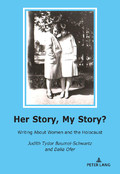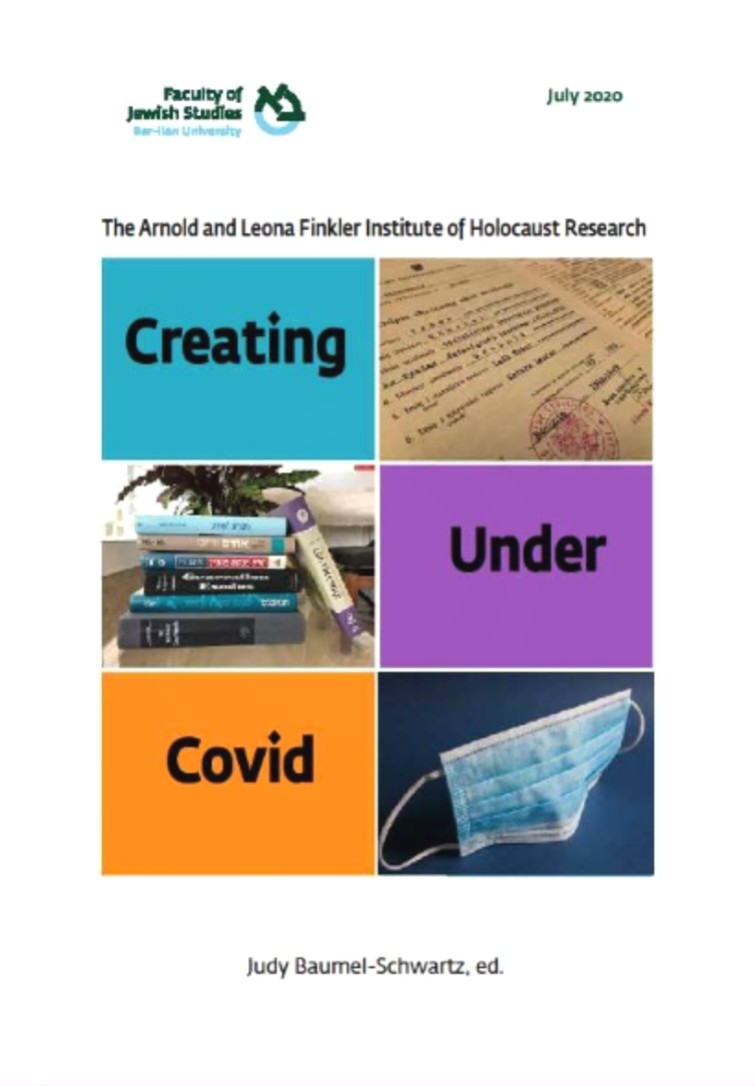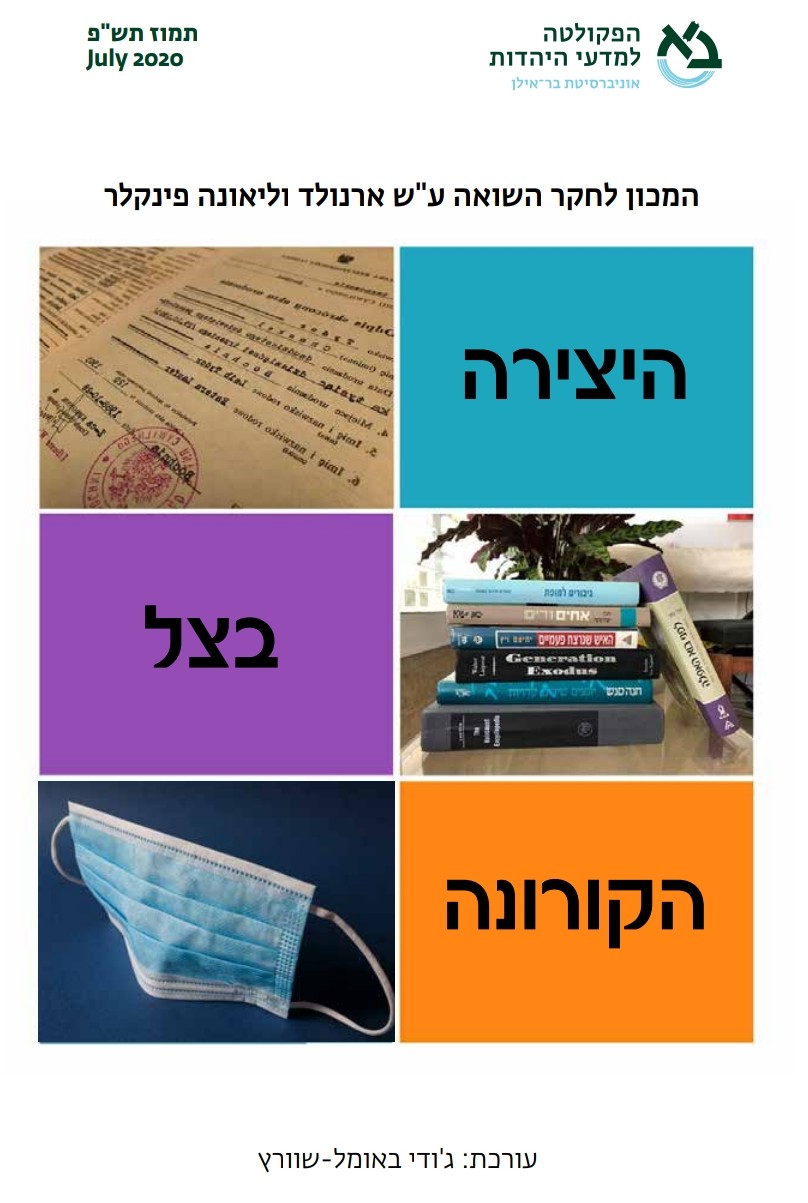Publications
Between 1988 and 2002 the Arnold and Leona Finkler Institute of Holocaust Research published a bi-lingual newsletter entitled The Bulletin of the Arnold and Leona Finkler Institute of Holocaust Research. The Bulletin, edited by Prof. Judy Baumel-Schwartz, included a number of features that appeared in each issue: "From the Historian's Workshop" (interviews with researchers), "Current Research Projects" (of Institute researchers), "Student Contributions", Holocaust Studies in Israel, Spotlights on projects, and an extensive book review section.
Ten issues of the Bulletin appeared:
1 | 2 | 3 | 4 | 5 | 6 | 7 | 8 | 9.1 9.2 9.3 | 10.1 10.2 10.3
Basic Research Materials Series 1-16
In December 1985 the Machon published the first and only issue of a bi-lingual journal called Keshev.
English | Hebrew
Guides to Archival Collections of material pertaining to Orthodox Jewry.
Supporting the publication of books by the Institute's Director and researchers, and those of Bar-Ilan University graduate students and staff members, pertaining to the Holocaust. These include books by Dr. Hava Eshkoli, Prof. Judy Baumel-Schwartz, Dr. Yehuda Ben-Avner, Dr. Yigal Binyamin, Prof. Nathaniel Katzburg, Dr. Pnina Meizlish, Prof. Dan Michman, and Prof. Bat-Ami Zucker.
Basic Research Materials Series
From 1989 until 2015 the Arnold and Leona Finkler Institute of Holocaust Research published a series of Basic Research Materials prepared by scholars working at or connected with the Institute.
 |
Rivka Knoller, The Activities of Religious Zionist Youth Groups in Europe During the Holocaust, 1939-1945. A Summarized review of limited archive sources (Heb.), Ramat-Gan, 1989 (reprint: 1992). |  |
Gershon Greenberg (comp.) Wartime Yishuv Religious Jewry Confronting the Holocaust: An annotated listing of articles and books reflecting Jewish religious responses in Eretz-Israel during the era of catastrophe, 1938-1948 (Heb.), Basic Research Materials Series 9, Ramat-Gan, 1997. |
 |
Judith Tydor Baumel and Rivkah Knoller (compilers), A Guide to the "Dworzecky Collection" Files in the Finkler Institute of Holocaust Research (Heb.), Basic Research Materials Series 2, Ramat-Gan, 1990. |  |
Hava Eshkoli (ed.), The Reconstruction of Religious Zionism in Europe Among She'erit Hapletah: A Symposium (Heb.), Basic Research Materials Series 10, Ramat-Gan, June 1998. |
 |
Penina Meizlish (comp.), Religious Life During the Holocaust according to Community Memorial Books [a Listing] (Heb.), Basic Research Materials Series 3, Ramat-Gan, 1990 (332 entries). |  |
Moshe Verdiger, The Holocaust as a Theological Turning Point (Heb.), Basic Research Materials Series 11, Ramat-Gan, 1998. |
 |
Yehuda Ben-Avner (comp. + intro.), Index of Information on Orthodox Jewry, Antisemitism and Persecution of the Jews 1918- 1938) in "Der Israelit" – the Periodical of German Orthodoxy (Heb.), Ramat-Gan, 1991. |  |
Gershon Greenberg (comp. + intro.), Faith and Holocaust as Issues of Jewish Religious Thought in the USA 1938-1948 (Heb.), Basic Research Materials Series 12, Ramat-Gan, 1999. |
 |
Gershon Greenberg (comp.), She'erit Hapleta Confronting the Impact of the Holocaust: A Listing of Articles and Books Reflecting Jewish Religious Responses to the Holocaust in its Immediate Aftermath (1944-1949) (Heb.), Basic Research Materials Series 5, Ramat-Gan, 1994. |  |
Dan Zihtz, The History of the Minsk Ghetto (In the Light of the New Documentation) (Heb.), Basic Research Materials Series 13, Ramat-Gan, 2000. |
 |
Joseph Karniel (comp. + intro.), A Listing of Articles on Orthodox Jewry in Austria, Published in the Austrian Orthodox Jewish Press, 1918-1938 (Heb.), Ramat-Gan, 1996. |  |
[Itamar Levin], Victims, Heirs and Insurance, a Study of the Palesitniaan Enemy Debts Registrar's Forms, 1946-1947 (A Report Presented to the International Commission on Holocaust Era Insurance Policies, June 1999, by the Finkler Institute of Holocaust Research) (Eng.), Ramat-Gan, 2000. |
 |
Zwi Bacharach, Hikrei Zvi: A Selections of Zvi Bacharach's Articles about Antisemitism, Germany and its Jews, Racism and Nazism and the Holocaust and its Results (Heb. + German), Basic Research Materials Series 7, Ramat-Gan, 1996. |  |
Mali Eisenberg (Gotdiner), Witnessing, Protesting, Documenting, Commemorating: Moshe Prager and the Holocaust 1940-1984 (Heb.), Basic Research Materials Series 15, Ramat-Gan, 2006. |
 |
Dan Michman (comp.+ intro.), Post-Zionism and the Holocaust: The role of the Holocaust in the Public Debate on Post-Zionism in Israel, 1993-1996, a collection of clippings (Heb.), Basic Research Materials Series 8, Ramat-Gan, 1997. |  |
Dan Michman (comp. + ed.) Post-Zionism and the Holocaust (B): The Role of the Holocaust in the Public Debate on Post Zionism in Israel since the beginning of 1997 until after the 50th anniversary of the State of Israel (July 1998) – a collection of clippings, (Heb.), Basic Research Materials Series 16, Ramat-Gan, 2007. |
Women Recall the Holocaust: Women Studying Women in the Holocaust, A Collected Volume

There is little doubt that the Holocaust was a watershed event of the twentieth century. Even as it occurred, scholars were already studying its causes and various aspects of its development. During the first post-war decades they focused upon what they felt were its major facets: Nazi policy towards the Jews, Jewish leadership, resistance, rescue attempts, and the Nazi camp universe. By the 1970s, academic Holocaust scholarship had expanded to include social and cultural topics such as daily life under Nazi rule, the plight of refugees, and the fate of children under the Nazis. Almost all were treated as worthy research topics that helped us better understand the dynamics of this catastrophic period.
One topic continued to elicit great debate among scholars and laypersons alike: Gender and Women during the Holocaust. Initially viewed as an outgrowth of "Second Wave" feminist study, for years, many scholars studying this aspect of the Holocaust faced a lack of understanding and acceptance of their topic among their peers. Some were warned that their choice would marginalize them professionally. Others were told that they were playing into the hands of Holocaust revisionists. Not only was the focus of their research delegitimized; their professional standing was often challenged, or they were warned that their research choice would affect their possibilities of career advancement.
And yet, most persevered. As time passed, more and more scholars in various disciplines of the Humanities and the Social Sciences began examining different facets of Jewish women's lives during the Holocaust and its aftermath. The articles and books that they published became the source material for courses on the topic, and the existence of these courses encouraged graduate students to specialize in the topic. Thus, a new scholarly topic emerged, one that often challenged existing beliefs within the discipline of Holocaust studies.
Some of the scholars dealing with the topic advanced in rank. Others became pivotal members of Holocaust research institutes and Holocaust memorial. A third group chose to continue researching and writing on the topic as independent scholars while pursuing a different career. Today, over three and a half decades after the path-breaking conference about "Women Surviving the Holocaust" that took place in New York in 1983, dozens of scholars throughout the world have devoted years of their lives to write about what some had once called a marginal, insignificant, or even dangerous facet of Holocaust research. Almost all these scholars are women. Each came to the topic in her own way; each faced different sets of challenges on that journey; each then chose to focus on a different aspect of women's lives during the Holocaust; each has her own story.
We believe that these stories deserve a voice and that together they tell a broader story, one that charts not only how a topic was born but how it developed over almost two generations of scholarship. It is the story of academic challenge and courage. It is the story of perseverance. For some, who were mentored by older women scholars who encouraged them on their journey, it is the story of sisterhood. For others, who fought the establishment on their own, it is the story of professional loneliness and personal strength. For all, it is the story of an unconventional, courageous, and promising choice in Holocaust research.
These stories are at the crux of the forum entitled "Women Recall the Holocaust". The forum's first project is to publish of a volume of essays written by forum participants. All participants in the volume have devoted a significant part of their professional lives to writing about aspects of Jewish women's experiences during the Holocaust. We believe that this choice was not random, and in many cases was rooted in the personal history and professional experiences of each scholar which later affected the fruits of her scholarship.
Each participant wrote an autobiographical-academic essay about the journey she underwent while working on the topic and her experiences while conducting her research. Essays also relate to issues of identity, personal choice, religious, political, or cultural affiliation, and the connection between these issues and the focus of their research. The essays were published by Peter Lang Publishers in a volume entitled Her Story, My Story? Writing about Women and the Holocaust edited by Judy Baumel- Schwartz of Bar-Ilan University and Dalia Ofer of The Hebrew University in Jerusalem. The volume is a joint project of the Arnold and Leona Finkler Institute of Holocaust Research headed by Prof. Judy Baumel-Schwartz, and the Fanya Gottesfeld Heller Institute for the Study of Women in Judaism, headed by Prof. Yael Shemesh, both at Bar-Ilan University. It was dedicated to the memory of Holocaust survivor Fanya Gottesfeld Heller and the pioneering scholars in the field of women's Holocaust study, and Mrs. Gottesfeld Heller's daughter, Dr. Jacqueline Heller Kahane, wrote the volume's preface.
The forum second project is to develop and maintain an internet discussion group for its members, and for all those who will join the forum in the future. The discussion group will act as a virtual platform to disseminate information to its members worldwide about new research, conferences, publications and events having to do with Women in the Holocaust and during the Second World War.
Creating Under Covid


Creating Under Covid is a collection of over short essays written by Forum members of the Arnold and Leona Finkler Institute of Holocaust Research at Bar-Ilan University in Israel, describing their experiences and thoughts during the "first wave" of the Covid-19 pandemic (February-June 2020).
The book was published in two versions, Hebrew and English, which contain different essays.
, English digital version English PDF version / Hebrew digital version Hebrew PDF version



